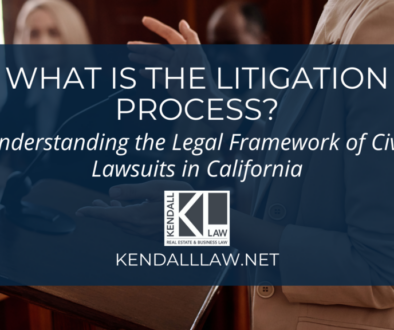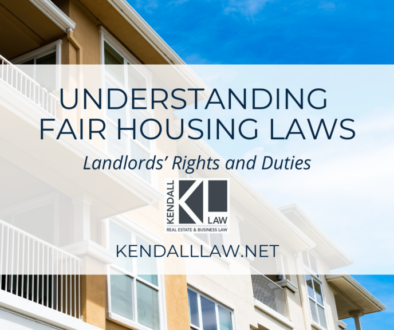Strategies to Avoid Litigation for Realtors (Part 2)
Author: Eileen Kendall
Realtors: Are you violating any of these advertising rules?
As I mentioned in my last post, last year I became an affiliate member of the local realtor’s board to help make relationships to build my business. At the end of last year, I was honored to be asked to be speak about risk management at the new realtor orientations that are held every other month. I also decided to sponsor the Young Entrepreneurs Network (“YPN”) of the same local realtor’s board for the 2018 year. As a sponsor for YPN, I was asked to speak on a panel and give legal strategies to avoid litigation. It was an honor and privilege to do so. Today’s blog is a few of the talking points I spoke about with respect to advertising as set by California Association of Realtors.
- Honesty is the best policy – The number one best strategy for advertising is to be honest and know all the current regulations with respect to what needs to be included in advertising.
- Provide the right details – As of Jan 1, 2018, on all advertising must include your name, license identification number, and responsible broker’s identity on all solicitations intended to be a first point of contact with consumers. This includes business cards, stationery, advertising brochures or flyers, advertisements on television, in print, or electronic media and “For Sale,” “For Rent,” “For Lease,” “Open House,” and directional signs, unless an exception applies. Review the regulation to determine if an exception applies.
- Even font size matters – As of Jan 1, 2018, the following changes to advertising became applicable: The font size of the identification number can be no smaller than the smallest size of any other type used in the material. If the name of more than one licensee appears in the material, the license identification number of each must appear also.
- Accuracy is critical – It is never okay to provide false or misleading advertisement. You cannot hide from liability by claiming that the buyer or consumer should have made reasonable enquiries and checked that the information provided was accurate. The information you provide must be accurate.
- The rules apply to Social Media too – In today’s market social media is a well-used and popular way to market and advertise. If you are a broker, it is a good idea to create internet marketing/social media policies for your brokerage and then educate your agents on the risks and proper use of social media. There are model policies available to review and use to formulate your own policies. You can obtain sample social media guidelines You can visit the NAR or CAR website for information on sample social media guidelines.
- If you can’t say anything nice… Always keep in mind that if it is against a regulation or law to do it in person or in another form then it is also improper to do it on social media. For instance, bashing or talking ill of a property or another brokerage in comments or posts is slander. A major misconception is that comments made in Facebook groups and other online forums are private. Even if the group is private, a fellow member could take a screen shot of the conversation and file an ethics complaint. You could also violate the regulations about keeping financial information private when you are complaining or talking about a commission on social media and you give out too much information. It is just a good practice to not complain on FB, you never know who is seeing it or what they are going to do with the information.
- Sharing listings – Retweeting or sharing another agent’s listing on your own social media timeline could constitute an improper advertisement of the other agent’s listing because the “advertisement” could be inconsistent with exclusive-representation agreements the other agent had with the client. Best strategy is to ask the realtor that has the listing if it is okay to share or retweet.
- Business versus personal posts –Sharing information about listings on your personal Facebook that does not identify your license number and brokerage could be violating the regulations listed above. To avoid any issues, include a link in the post to a webpage that displays your company’s logo and license information prominently.
- Blogging responsibilities – With blogging and any other advertising on social media there are risks of, just to name a few, defamation, copyright, anti-trust violations, Fair Housing Act Violations. If you blog, you need to have a statement on the blog that provides clarification about statements posted by others or a statement that provides that you will remove statements made by others on electronic media once you know the statement is false or misleading. You and your firm have an affirmative obligation to publish clarifications about or remove defamatory comments made by others. It is also a good idea to make the blog private and not public and require registration to post and not allowing anonymous posts.
Stay tuned for next month’s important topic: Can you pay for a referral?
For consultations or information on having Mrs. Kendall present for your agents contact us at Kendall Law, info@kendalllaw.net
Are you on our list to get great legal insight for your business? Sign up through our Contact Us page. (Nothing spammy, just the latest hot tips to help business and real estate professionals.)
Author: Eileen Kendall





